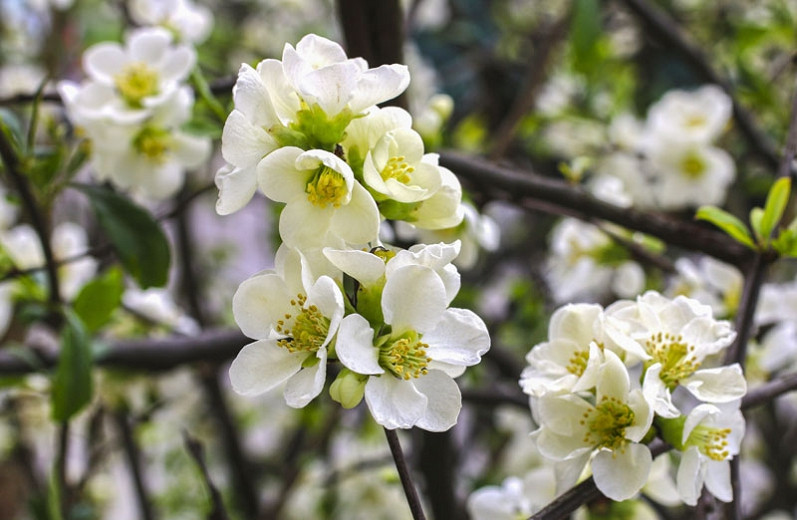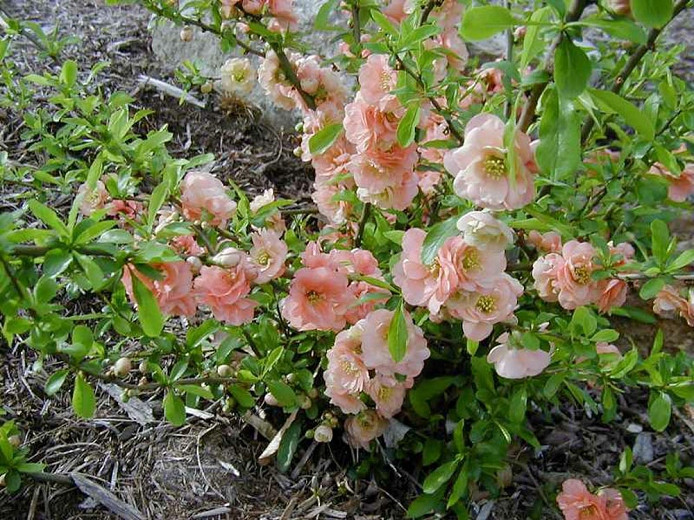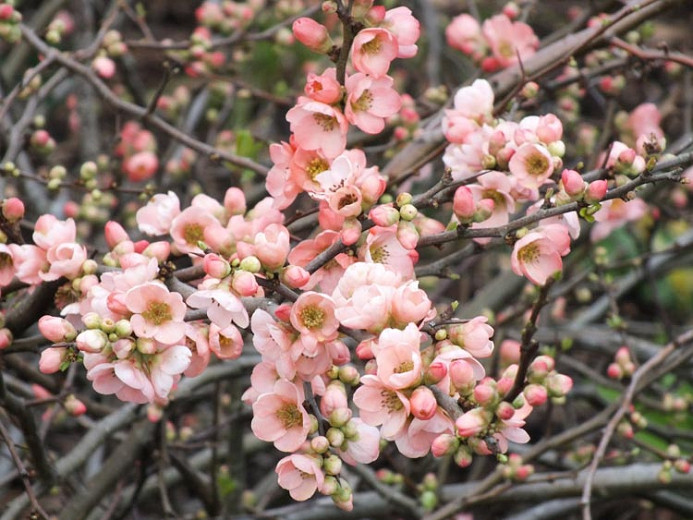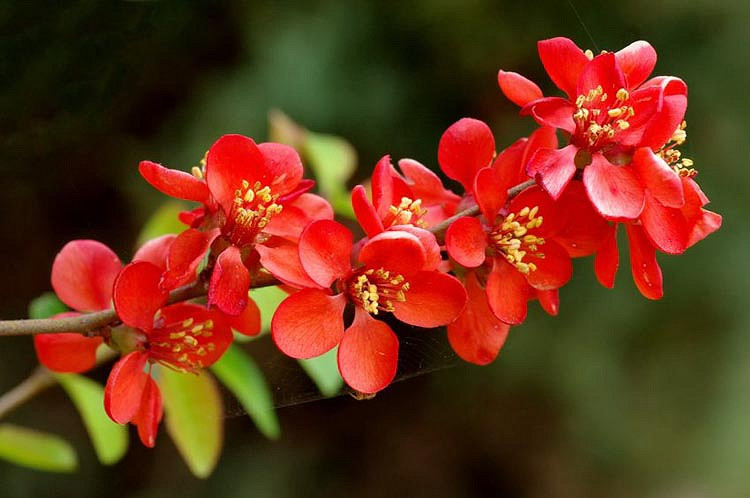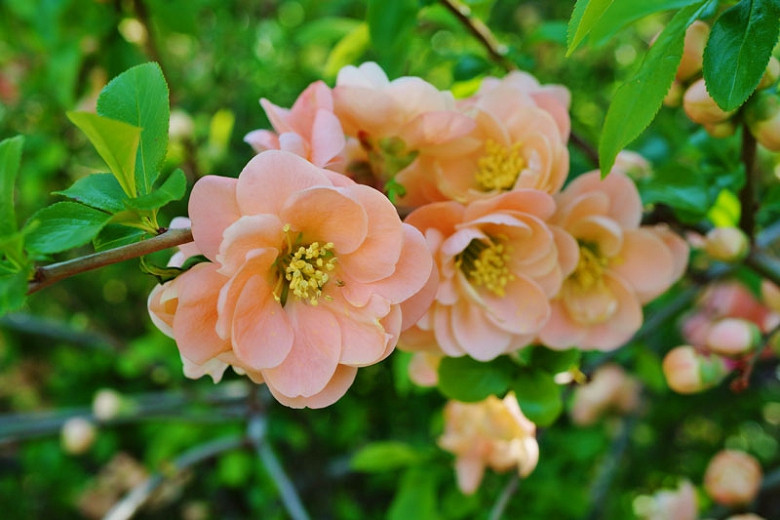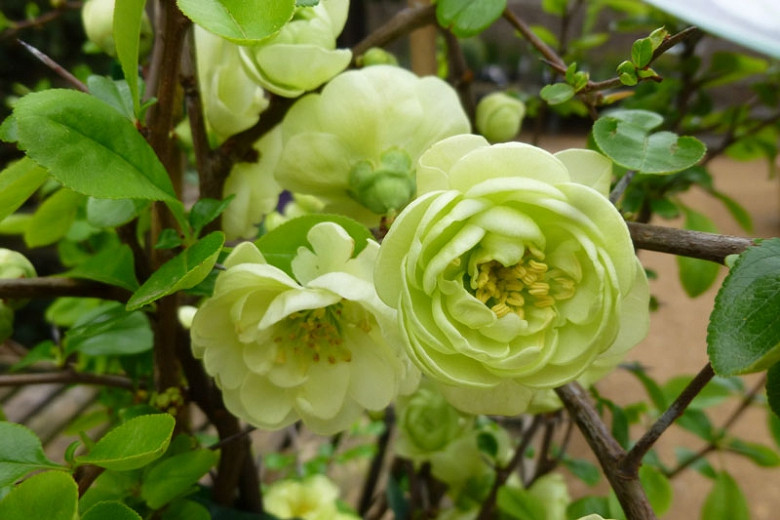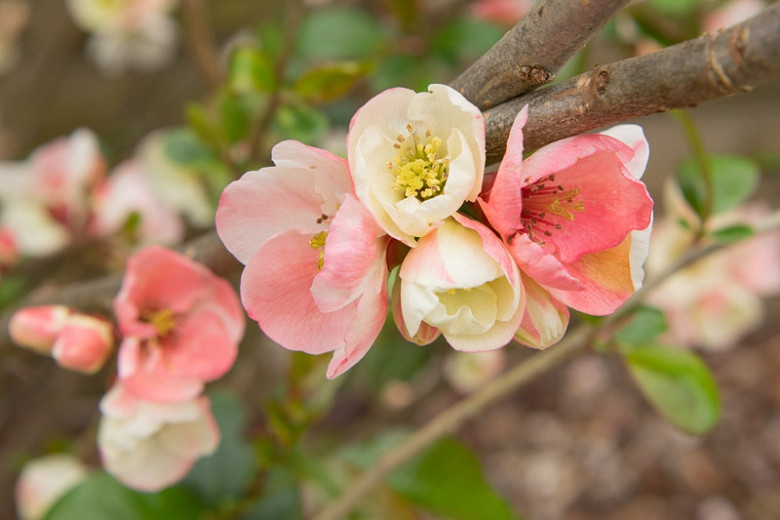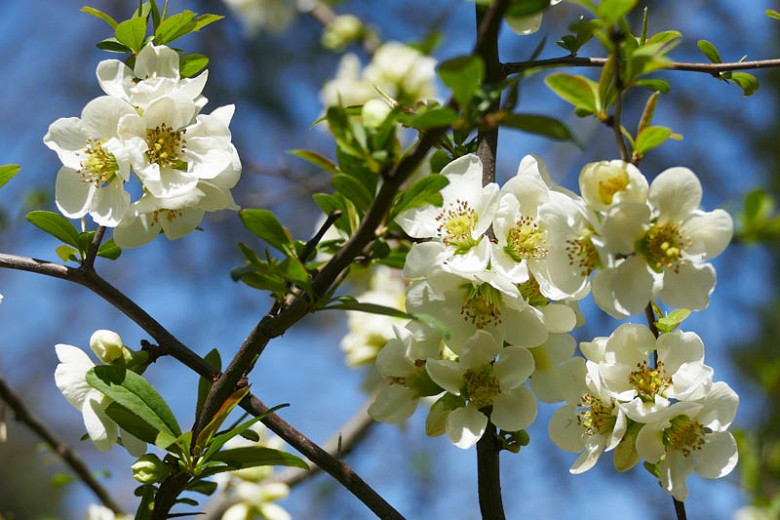Chaenomeles x superba Jet Trail (Japanese Quince)
Chaenomeles x superba ‘Jet Trail’ is a compact, spreading, deciduous shrub with abundant clusters of pure white flowers, up to 1.5 in. across (4 cm), adorned with prominent golden anthers. Borne on thorny, tangled leafless branches, they bloom in profusion for weeks in early spring, before the glossy, oval, green leaves emerge
Chaenomeles x superba 'Jet Trail' is a compact, spreading, deciduous shrub with abundant clusters of pure white flowers, up to 1.5 in. across (4 cm), adorned with prominent golden anthers. Borne on thorny, tangled leafless branches, they bloom in profusion for weeks in early spring, before the glossy, oval, green leaves emerge, creating a brilliant floral display at a time when there is little to be excited about in the garden. The flowers give way to small, fragrant, greenish yellow fruits, 2 in. across (5 cm), which ripen in early fall. Edible, they are considered too bitter to be eaten directly from the shrub, but they may be used for preserves and jellies.
- Grows up in a bushy, densely-branched shrub up to 3-4 ft. tall and wide (90-120 cm).
- A full sun to part shade lover, this plant is easily grown in average, medium, well-drained soils. Best flower production occurs in full sun. Adapts to a wide range of soil conditions, including dry soils and clay soils provided there is good drainage. Drought tolerant once established.
- Easy to care for and nearly indestructible, Japanese Quince is a perfect choice for mixed shrub borders, banks and slopes, or low-flowering hedges. The spreading form and spiny branches make this plant an excellent choice for screening, or as a security barrier. Great as a specimen plant and for foundation plantings. Japanese Quince may also be trained against a wall.
- Deer and rabbit resistant
- Plants bloom on old growth. Prune to shape as required after flowering to encourage the growth of flowering spurs. Note that such pruning will reduce fruit production. Remove root suckers to control possible spread.
- Propagate by semi-hardwood cuttings
- Branches can be cut from your Japanese Quince in late winter and forced to bloom indoors.
Requirements
| Hardiness | 5 – 9 |
|---|---|
| Heat Zones | 5 – 9 |
| Climate Zones | 2, 2A, 2B, 3, 3A, 3B, 4, 5, 6, 7, 8, 9, 10, 11, 12, 13, 14, 15, 16, 17, 18, 19, 20, 21, 22, 23 |
| Plant Type | Shrubs |
| Plant Family | Chaenomeles – Flowering Quinces |
| Exposure | Full Sun, Partial Sun |
| Season of Interest | Spring (Early) |
| Height | 3' – 4' (90cm – 120cm) |
| Spread | 3' – 4' (90cm – 120cm) |
| Spacing | 48″ (120cm) |
| Water Needs | Average |
| Maintenance | Low |
| Soil Type | Chalk, Clay, Loam, Sand |
| Soil pH | Acid, Alkaline, Neutral |
| Soil Drainage | Moist but Well-Drained, Well-Drained |
| Characteristics | Cut Flowers, Fragrant, Showy |
| Tolerance | Clay Soil, Deer, Drought, Rabbit |
| Garden Uses | Banks and Slopes, Beds and Borders, Hedges and Screens, Wall-Side Borders |
| Garden Styles | Informal and Cottage, Traditional Garden |
